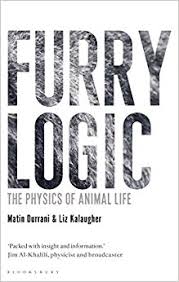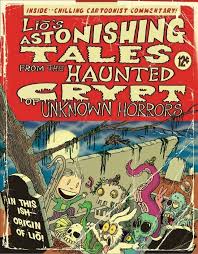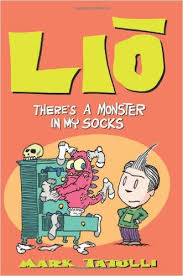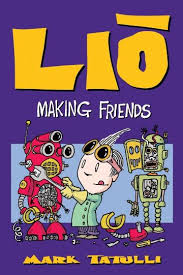 SOUNDTRACK: RHEOSTATICS-The Casbah, Hamilton, Ontario (November 6, 2004).
SOUNDTRACK: RHEOSTATICS-The Casbah, Hamilton, Ontario (November 6, 2004).
 This was a Hamilton show between the 2004 Western Fall Nationals and the 10 night Fall Nationals at The Horseshoe Tavern the following week. The band attempted to play all of 2067 succeeding apart from “The Latest Attempt On Your Life” and “Try To Praise This Mutilated World.”
This was a Hamilton show between the 2004 Western Fall Nationals and the 10 night Fall Nationals at The Horseshoe Tavern the following week. The band attempted to play all of 2067 succeeding apart from “The Latest Attempt On Your Life” and “Try To Praise This Mutilated World.”
The recording opens with some wild jazz playing–rather incongruous opening music. But it quickly fades and you hear the guys plucking away as their noodling solidifies into “Easy To Be With You.” They seem to be having a lot of fun with the hoo ah hoo ah middle part–making it a bit more rocking, perhaps?
Martin: “This is for Yod’s sister.” Mike: “And Daryl from Niagara Falls, Happy Birthday.” Tim: “We couldn’t download the lyrics to ‘Edmund Fitzgerald’ so we’re gonna do this one instead. Mike: “All the teleprompter rentals were eaten up by the U.S. election.” Martin: “And Velvet Revolver are on tour.” They play a stompin “Record Body Count.”
So we have a new record out. It’s called “twenty one twel–“. It’s called 2067. Tim: “It’s our 2,067th release.” Martin: “We’re a very prolific band. And we’re gonna attempt to do it top to bottom.” Mike: “And you know what they say, there’s a fine line between flagship and guinea pig and you’re it.”
The first song is “Shack in the Cornfields.” Martin introduces it: “This song had a large head. But Mike and I got down to it and made sure it was born. In the corn.” It sounds good and has a really long percussion ending and then opens up into Dave’s quiet “Little Bird,” a song they have played a lot over the last year.
Next up is “Marginalized,” which is a bit softer and less angry than some other versions.
Dave says, “We’re gonna do a song we just shot a video for. We do a video every couple of years. We got Frank Bonner to co-star in this video with Martin. It’s called The Tarleks and it’s about Herb Tarlke from WKRP in Cincinnati from the late 1970s and 1980s, the heyday of modern American sitcoms. And one day it will be done and you will see it. But until then you just have to fantasize what it might look like.” It’s a little slow an angular. Like much of the show it feels either tentative or like they want the audience to be able to experience the songs fully.
“Power Ballad for Ozzy Osbourne” has the opening stanza which they hadn’t been playing live. This is slower than usual, I think–although it feels like a real ballad the way it builds. There’s a buzzy wire as well, which I’m sure bugs the band. “I Dig Music” is a little goofier and less rocking than other versions. On the way after the middle section MPW plays the drum fill for Rush’s “Lakeside Park” but not quite right. For “Here Comes the Image” Mike plays a playful almost bell-sounding keyboard solo–although it does cut out a few times during the lengthy solo at the end.
Dave notes: “The worst part of switching instruments is not knowing which beer is yours.”
Mike says, “This song [“Who Is This Man and Why Is He Laughing?”] has no words. It’s drifting and mellow. Next up is supposed to be “The Latest Attempt on Your Life” which they have played live before. But you hear Martin say he doesn’t want to do it: “Let’s skip that one and do ‘Polar Bears.'” Mike agrees, “If we were doing Dark Side of the Moon or something we’d stick to it but we’re going to deviate.” It’s a spare but romping version of “Polar Bears” with some loud “hey hey ho hos.”
Dave: This next song is about yesterday’s football game that Tim wrote, uh, four weeks ago. Two days ago? Friday night? What day is it? That was yesterday I was talking Tiger Cats.
Mike: “Making Pierogies.” It’s a slow mellow song. Very pretty, especially the guitar parts at the end
Next week is our 4th annual Fall Nationals at the Horseshoe Tavern in Toronto (corner of Queen and Spadina). Ten nights in a row this year starting next… the coming Thursday.
Tim: Thanks to Wayne Omaha for playing tonight. They’re selling their new album back there and if you wanna get their other one Can the Maps. Go For the Beauty, bug them, and they’ll sell it to ya.
Dave: I think those guys should tour prisons. I think it would be really good for the country. As long as they’re on the right side of the bars.
They skip “Try to Praise This Mutilated World” and go into “P.I.N.” They play the coda at the beginning and then the songs starts. Martin sings his verse in a kind of flat deadpan and Dave says Martin Stop rapping and Martin seems to get annoyed or something–he starts singing crazy–more deadpan and then he screams a punky style and then redlines the volume with a scream on the mic–it’s a little disturbing. They jump into a poppy “Mumbletypeg” and after the first line Dave says “That’s a lot of beer.” It gets pretty wild by the end. It segues into a dark “Stolen Car,” with Martin singing “Goodbye suburban motherfuck.” The middle has a lengthy instrumental section with Tim getting to mess around on bass a bit.
After a relatively long encore break, the come back with “Pornography.” “We wish that song wasn’t relevant; however, it is.”
Then there’s a slow “California Dreamline.” And they end with a long “Feed Yourself” with a really creepy section of Dave whispering all kinds of things like “me and you in his head.” The song ends with some wild effects from someone–almost a minute of pinging sounds after which Dave says, Sorry.
[READ: February 21, 2017] Furry Logic
This book came across my desk at work (I’m still bummed that they changed the way we get books at work so I don’t see as many interesting ones as I used to). It looked interesting, so I brought it home and read it over the weekend.
This is a pop-science book that looks at how animals use physics to their advantage: “If you’re scared of physics, don;t worry, we’ve kept things simple.” I enjoyed that the book states right up front that the authors are anthropomorphizing the animals because that makes for a much better story. Even though, in the end, they dismiss this idea.
Chapter 1 is called Heat: The Warm Up Chapter. In which we learn about gender-swapping snakes, floppy skinned dogs, mosquitoes that wee blood, killer bees, hot-tailed squirrels, vipers that see heat and beetles that hear infrared.
The chapter looks at (using the research of others) how snakes in Manitoba keep warm by piling together in a big clumps. But more interestingly, there are certain snakes which swap genders (temporarily). Male snakes secrete female pheromones to attract males for body heat. We learn that dogs shake the water off of them because the energy they expel from the vigorous shaking is actually far less than the energy they would have to use to keep warm if they were so wet. The authors talk a lot about just how interesting it is to see their skin flip back and forth (this goes for all mammals since they all seem to shake in vaguely the same way. (more…)
Read Full Post »
 SOUNDTRACK: RODRIGO Y GABRIELA-“Echoes” (2019).
SOUNDTRACK: RODRIGO Y GABRIELA-“Echoes” (2019). Rodrigo y Gabriela are amazing guitarists. Rod plays amazing solos wile Gab plays an astonishing rhythmic counterpoint (both on acoustic). Although they do play classical and Spanish styles (and so much more) they often mix heavy metal elements into their songs. I have seen them twice live and they blew me away each time.
Rodrigo y Gabriela are amazing guitarists. Rod plays amazing solos wile Gab plays an astonishing rhythmic counterpoint (both on acoustic). Although they do play classical and Spanish styles (and so much more) they often mix heavy metal elements into their songs. I have seen them twice live and they blew me away each time.
















